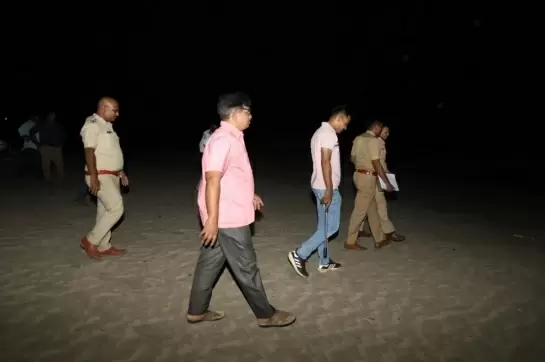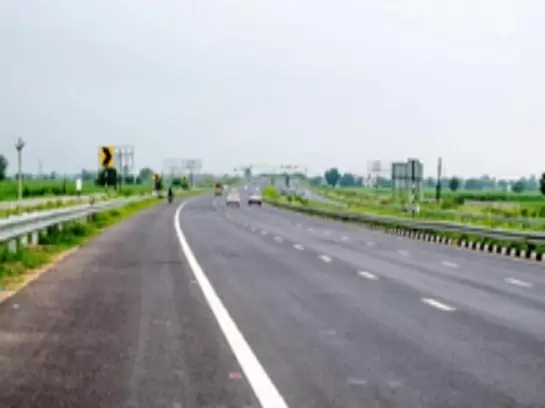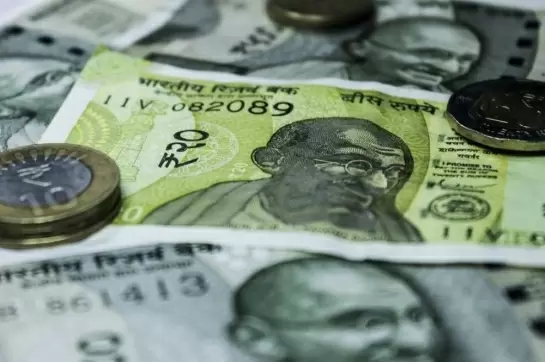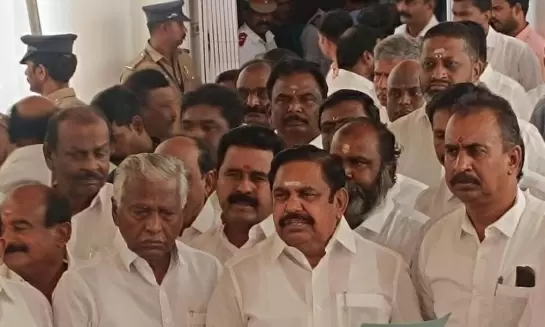Indo-Dutch coop against anti-microbial resistance showcased
15-October-2019
A two-day India-Netherlands Technology Summit began here on Tuesday, focused on co-creating innovative solutions for global challenges relating to water, food and good health.
India's Department of Science and Technology, along with CII, organized the event to mark 25 years of the summit. The central theme of the summit was 'NEXUS' and it served as a forum for showcasing opportunities for Indo-Dutch collaboration across key areas as well as for highlighting fruitful cooperation on topics pertaining to the public good.
Together, the two countries have made strides in addressing societal challenges and leveraging technology towards creating a better future.
One of the key areas of joint efforts has been tackling Antimicrobial Resistance (AMR) through the "One Health" approach. The Summit featured dedicated sessions on this.
AMR is a multi-faceted challenge, with drivers going beyond mere overuse or misuse of antibiotics in humans and animals. The 'One Health' approach also looks at environmental factors that contribute to the AMR burden, including inadequately treated effluent from pharmaceutical manufacturing units, run-off from poultry farms, slaughterhouses, and liquid waste from hospitals, said a statement from the Netherlands Embassy.
Compared to other countries in the European Union, resistance rates are particularly low in the Netherlands, primarily because of early adoption of the 'One Health' approach, which aims to combat AMR holistically in the healthcare system, in animals, in food and in the environment through coordinated action.
At this AMR One Health Session at the Technology Summit, a letter of intent for a new collaboration has been signed between C-CAMP from India and AMR Global from the Netherlands with aim to work together towards building and enabling innovations to address global AMR issue.
C-CAMP is an initiative of Dept of Biotechnology, under India's Ministry of Science and Technology, with a mandate to be an enabler of cutting-edge life science research and innovation with an emphasis on combating resistant bacterial infections.
AMR-Global is a collaboration of public and private parties from across the Netherlands and beyond. Both organisations join forces to ensure that everybody around the world has access to effective anti-microbial drugs and vaccines, and sustainable alternatives are available to curb the current overconsumption of antibiotics in both man and animals.
The Global Action Plan on AMR outlines five strategic priorities for action, and the Indian National Action Plan on AMR (NAP-AMR) goes one step beyond and adds a sixth priority - Leadership and Collaborations - which covers international, national as well as state-level collaborations.
"India launched its National Action Plan on AMR (NAP-AMR) in April 2017 in line with the 'One Health' approach proposed in the Global Action Plan. AMR is a global public health challenge, and it is imperative that countries come together to jointly fight it. The Netherlands' National Institute of Public Health and the Environment (RIVM), which advises the government on AMR related matters, has also been working closely with the Indian Ministry of Health and Family Welfare. Our collaboration with the Netherlands has helped us learn from their experiences and success on AMR surveillance, and containment of resistance in the environment," said Lav Aggarwal, Joint Secretary, Ministry of Health and Family Welfare.
The Netherlands's Minister for Medical Care, Bruno Bruins, who was present at the Summit, highlighted the urgency of combating AMR, stating that "it is an international concern and we need to ensure the subject stays a top priority for governments. It is heartening to see that India has a dedicated National Action Plan on AMR, and RIVM and the Government of the Netherlands are happy to cooperate with India in furthering implementation of the plan, so that together we can create an on-ground change".
He said the MOU signed on Tuesday between the Bengaluru-based CCAMP and the Dutch public-private partnership AMR-Global, will kick start India/Dutch collaboration in this field.
"As India is a major manufacturer and user of antimicrobials, the sustainable production and use of these life-saving drugs needs to be prioritized as part of the 'One Health' approach and this new collaboration between CCAMP and AMR-Global will help move this forward," he said.
The World Health Organization had supported both the drafting and the operationalisation of India's NAP-AMR and is now advocating at state-level for development of State Action Plans for Containment of Antimicrobial Resistance (SAPCARs). Already, the states of Kerala and Madhya Pradesh have rolled out state action plans, which like their national counterpart, take a holistic One Health view of the challenge and propose a cross-sectoral way forward.
Henk Bekedam, the WHO Representative to India, said: "The 'One Health' approach involving all stakeholders from human health, animal health, agriculture, food and environment are critical in our battle against AMR. We are committed to strengthening collaboration on AMR, standardising surveillance, ensuring infection prevention and control, and antimicrobial stewardship towards containment of AMR. As the technical partner for the India-Netherlands collaborative project on AMR, WHO will support the analysis and dissemination of lessons learnt to help scale up interventions across India."
"India remains committed to the fight against AMR, and we have made progress across various fronts in this regard. International cooperation is a key pillar of our NAP-AMR commitment, as the world does not have time to lose in containment of AMR and together, we stand stronger and better prepared," said Sujeet Singh, National Centre for Disease Control, India.
The Indo-Dutch pilot project on AMR under "One Health" in Andhra Pradesh is being implemented at Siddhartha Medical College and NTR College of Veterinary Science, in Krishna district of Andhra Pradesh. Standard operating procedures (SOP) for collection of the samples and their processing are being prepared in consultation with NCDC, New Delhi and RIVM, The Netherlands.
Samples from humans, poultry, aqua and the environment will be collected for isolation of Escherichia coli, which has been identified as the indicator organism for surveillance. The prevailing AMR pattern in these isolates from all sectors will subsequently be analyzed. In addition, infection prevention and control is another key focus area of this collaborative project, with focus on human and animal health.IANS
AI Cybersecurity Startup Neural Defend Raises $600K in Pre-Seed Round
Chennai Doctor and Family Found Dead Amid ₹5 Crore Business Loss
Karnataka Withdraws CID Probe in Ranya Rao Gold Smuggling Case
New Kerala Guv Strikes Cordial Tone, Hosts CM Vijayan And FM Sitharaman In Delhi
Digital Payments Surge in India: 18,120 Crore Transactions in FY24-25









